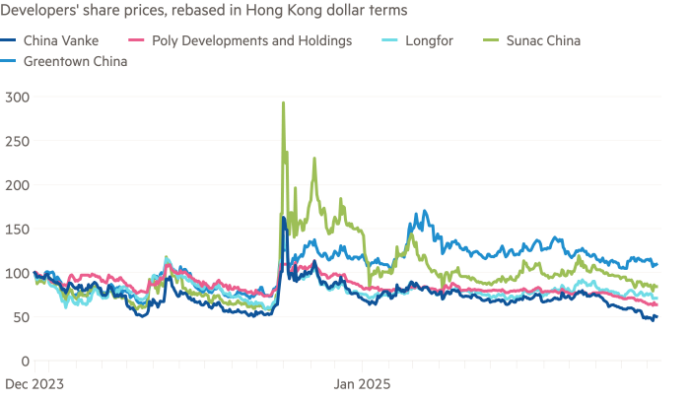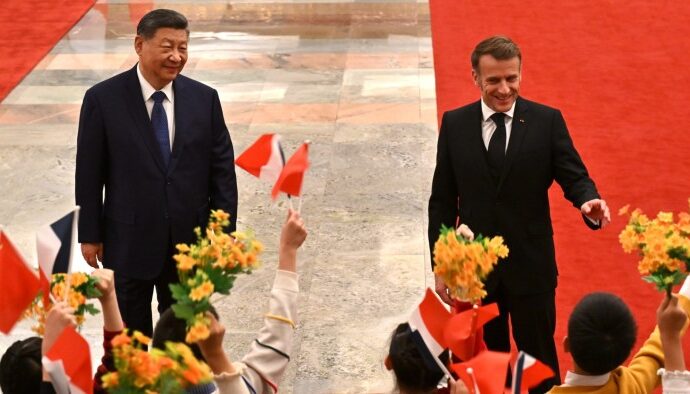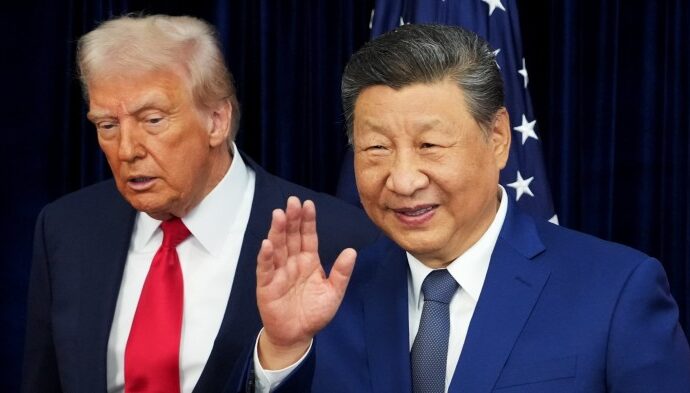Unlock the Editor’s Digest for free
Roula Khalaf, Editor of the FT, selects her favourite stories in this weekly newsletter.
Controversial former general Prabowo Subianto won a decisive victory in Indonesia’s presidential election on Wednesday and is set to succeed Joko Widodo at the helm of south-east Asia’s biggest economy, according to early projections by polling groups.
The 72-year-old former special forces commander will inherit an economy reshaped by the hugely popular Widodo, who has over the past 10 years put Indonesia firmly on the radar of foreign investors and positioned it as an important player in the global energy transition.
Prabowo’s pledge to continue Widodo’s policies has reassured investors and the Indonesian public. But some political analysts have raised concerns about Indonesia’s young democracy because of Widodo’s unusual tacit endorsement of Prabowo as his successor and the ex-general’s alleged past involvement in human rights abuses.
Prabowo, who is at present Indonesia’s defence minister, won close to 60 per cent of the vote, according to sample ballot results — known as quick counts — released by multiple private pollsters, including Indikator Politik Indonesia and Lembaga Survei Indonesia. That was a stronger showing than pre-election polls that put his support closer to 50 per cent.
“This is a very convincing win. Jokowi’s influence as a kingmaker in this election has been very consequential for Prabowo,” said Kennedy Muslim, an analyst at Indikator Politik Indonesia.
Prabowo had swept most of Indonesia’s 38 provinces, including traditional strongholds of his opponents, he said.
Former Jakarta governor Anies Baswedan was second with about 25 per cent, followed by former Central Java governor Ganjar Pranowo with less than 20 per cent, according to the unofficial projections. The two defeated camps alleged fraud and violations in the election process.
Prabowo said he and his running mate, Widodo’s 36-year-old son Gibran Rakabuming Raka, were “grateful” for the quick count results predicting victory.
“Prabowo-Gibran and our coalition will embrace all elements . . . We will lead, protect and defend all Indonesians regardless of ethnicities, religions, social backgrounds,” he said in a speech to thousands of supporters in a Jakarta stadium.
Prabowo is now expected to avoid a run-off in June that would have been triggered if he had received less than half the vote.
Quick counts have in the past been reliable and in line with official results, which will be announced in March. The new president will take over in October.
The preliminary result capped a remarkable turnaround for Prabowo, who in 2014 and 2019 ran bitter and polarising presidential bids against Widodo, popularly known as Jokowi. Prabowo has since softened his image by earning the backing of his former foe, dancing at election rallies and campaigning heavily on social media.
“Prabowo was propelled to victory by the unofficial but clear backing of the popular Jokowi and a successful, social media-driven rebranding,” said Peter Mumford, south-east Asia head at the consultancy Eurasia Group. “Prabowo’s first-round victory removes the immediate political uncertainty.”
The outgoing president spent heavily on infrastructure, pursued investor-friendly reforms and leveraged Indonesia’s vast nickel reserves to build an electric-vehicle ecosystem, part of his ambitions to transform Indonesia into one of the world’s top four economies by 2045.
He is constitutionally barred from running for a third term but enjoys approval ratings of 80 per cent, a public mandate he lent to Prabowo’s campaign.
“Jokowi has been very good for the economy and we should continue that. I would vote for him again if I could,” said 27-year-old Muhammad, who declined to give his full name. “Prabowo has promised to maintain [Widodo’s] policies; that’s why he is my choice.”
But some political analysts have warned that Prabowo could test Indonesia’s hard-won democracy, which was established in 1998 after bloody unrest that unseated autocrat Suharto, his former father-in-law.
Prabowo was discharged from the military the same year after being accused of ordering the kidnapping of more than two dozen pro-democracy activists, many of whom are feared dead. He has denied the allegations, which led to him previously being banned from the US.
Widodo has also faced criticism from activists and allies for engineering the nomination of his son Gibran as Prabowo’s running mate.
Gibran was cleared to run last year by the constitutional court, then led by Widodo’s brother-in-law, despite an age threshold of 40, drawing accusations that the outgoing president was trying to maintain control and establish a political dynasty.
Widodo has denied those suggestions and defended his backing of Prabowo, which has exceeded that of past Indonesian leaders for their preferred successors, saying the law allows presidents to campaign.
Additional reporting by Diana Mariska in Jakarta


